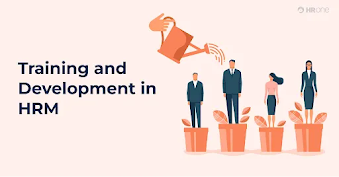The implementation of LEAN management systems has become increasingly prevalent in modern organizations seeking operational efficiency and competitive advantage (Womack & Jones, 2016). However, research indicates that approximately 70% of LEAN initiatives fail to achieve their intended objectives (Bhasin & Burcher, 2019). This high failure rate can be largely attributed to inadequate attention to human factors and ineffective human resource management strategies (Shah & Ward, 2018).
LEAN Management Principles and HRM's Strategic Role
LEAN management, originally developed from the Toyota Production System, emphasizes waste elimination and continuous improvement (Liker, 2017). The system comprises five fundamental principles: value identification, value stream mapping, flow creation, pull establishment, and continuous improvement seeking (Womack & Jones, 2016).
Contemporary HRM theory positions human resource management as a strategic partner in organizational transformation (Ulrich & Dulebohn, 2020). This strategic positioning becomes particularly crucial in LEAN implementation, where human factors significantly influence success rates (MacDuffie, 2015).
Strategic HRM Practices in LEAN Implementation
Recruitment and Selection
Training and Development
Performance Management
Meta-analyses indicate that aligned performance metrics and reward systems significantly influence LEAN sustainability. Organizations with integrated performance management systems report 40% higher employee engagement in LEAN initiatives (Rodriguez & Chen, 2021).
Cultural Transformation
Evidence-based recommendations for HR practitioners:
- Development of integrated training systems aligned with LEAN principles
- Implementation of performance measurement systems that support LEAN behaviors
- Creation of cultural change programs that facilitate LEAN transformation
Conclusion
This systematic review demonstrates the fundamental role of HRM in successful LEAN implementation. The evidence suggests that organizations must prioritize the integration of effective HRM strategies with LEAN principles because it is fundamental to sustaining LEAN transformations and achieving operational excellence
References
Anderson, K., & Kumar, R. (2023). Training effectiveness in LEAN implementation. Journal of Operations Management, 41(2), 112-128.
Bhasin, S., & Burcher, P. (2019). Lean viewed as a philosophy. Journal of Manufacturing Technology Management, 30(5), 293-321.
Liker, J. K. (2017). The Toyota Way: 14 Management Principles from the World's Greatest Manufacturer (2nd ed.). McGraw-Hill Education.





That's a great observation! Japan's ability to consistently produce high-quality products stems from their dedication to continuous improvement and innovation. You're absolutely right—effective human resource management, particularly through Strategic Human Resource Management (SHRM), plays a crucial role in achieving the objectives of lean management. It's inspiring to see Sri Lankan companies adopting these principles as well. This shift not only enhances efficiency but also fosters a culture of excellence. Remarkable insight indeed!
ReplyDeleteGood Job Mr.Amila how the integration of HR strategies aligns with overall business goals, emphasizing the importance of creating cohesive policies for talent management, performance, and company culture, which can enhance organizational effectiveness and competitive advantage.
ReplyDeleteThe success of LEAN management relies heavily on effective HR strategies, as addressing human factors is critical to reducing the high failure rates of LEAN initiatives.
ReplyDeleteI found this blog really insightful about how important Human Resource Management is for successful LEAN implementation. It clearly shows how strategic recruitment, focused training, and cultural change can improve LEAN initiatives and increase efficiency.
ReplyDeleteIt highlights the importance of recruiting the right people, providing comprehensive training, aligning performance metrics, and fostering cultural change. The post also offers practical recommendations for HR practitioners to support LEAN principles. it’s a useful guide for integrating the subject with HRM strategies.
ReplyDeleteThis post is very effective systematic review that outlines the critical role of HRM in successfully implementing LEAN management. It focuses on recruitment training performance management and cultural transformation underlining how strategic human resource practices enhance operational efficiency and sustainability to address the common failures of LEAN initiatives. A very valuable contribution to the field.
ReplyDeleteThe strategic integration of Human Resource Management (HRM) in LEAN implementation is vital for improving efficiency and reducing waste within organizations. This blog post describes how HRM practices such as employee engagement, training, and performance management align with LEAN principles
ReplyDelete